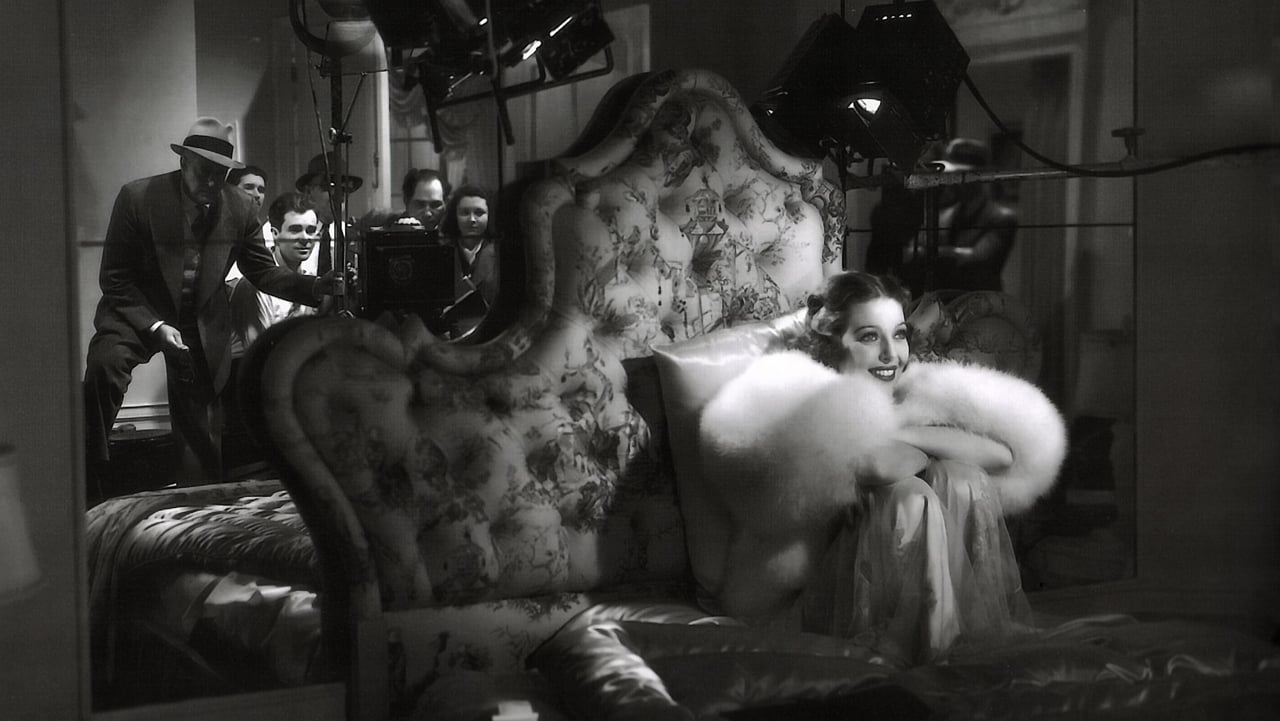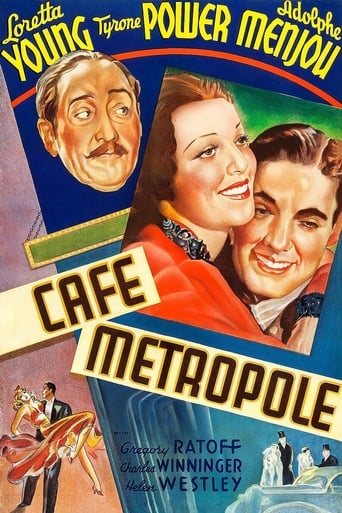

One can see why the studio couldn't help pairing Tyrone Power and Loretta Young - very attractively matched. They were quite taken with their new acquisition of Mr. Power, their answer to Clark Gable, et al, and gave him preferential handling over some of their proved ones, like Ms. Young, who had been a faithful producer for them for some time prior to this. Not only did Mr. Power quickly out-bill her, he also out-earned her, naturally something of an angst to her. He was rather spectacular looking as a young man, but to my mind, did not age as well as some of his counterparts. This is a delightful tale with a lot of fun from several quarters. Helen Westley was my all-around favorite, being, to me, an absolutely diverting woman always in whatever way. Coupled with papa, their segments were among my favorites. Adophe Menjou was faithfully fulfilling with his impish charm here. Very fun film.
... View MoreHaving embezzled money from the night club he manages, Adolph Menjou must now replace the money before the auditors arrive or face prison. He sees the opportunity with handsome Tyrone Power, a broke American whom he makes pose as a Russian prince in order to bilk American millionaires Charles Winninger, Loretta Young, and Helen Westley. However, the real Russian prince he has Power impersonating is there, under the guise of one of his own waiters (Gregory Ratoff). Related to the czars of Russia 25 times (5 times illegitimately), Ratoff is indignant over the use of Power with his identity. When asked by Winninger if Ratoff is a real Russian, Menjou says he is. Winninger's feisty sister, Westley, retorts, "Then how come he isn't driving a cab?" That's the type of humor to expect from this very enjoyable non-sensical screwball comedy the year of "The Awful Truth", "Topper" and "Nothing Sacred" (all-time classics), as well as duds like "True Confession" and "Double Wedding". "Cafe Metropole" falls closer to the classic mark. Looking at Tyrone Power and Loretta Young (here before she became Attila the Nun), it's impossible not to see why they were a popular screen couple. William Powell and Myrna Loy were sophisticated and witty, but Power and Young are downright beautiful to look at together. You can't help but wonder what their children would look like. Young is great when she's sinning a little; A few years down the road, she'd be a lot more difficult to watch. Power always remained easy on the eye, even if by the mid 40's he looked like a man-boy that resented his own prettiness and yet unable to face the on-coming middle age.There's also some rather humorous gay moments, particularly with an obviously gay hat seller who sells Power his own hat, and is then told by Power to throw the other one out. Adolph Menjou makes a wonderful scoundrel. You want to see him get his come-uppance, even if it's just the leads conning him on his own con. Winninger and Westley, as usual, are great scene-stealers. Westley gets the last word, and is so amusing. What would we do without those salty character people like Jessie Ralph, May Robson, Marie Dressler, Alison Skipworth and Ms. Westley? They are like the grandmothers we'd love to have---filled with both love and discipline, yet bubbling with an earthiness that makes us want to see them a bit under the influence to reveal what they are really like. Predictable, but lots of fun!
... View MoreThe character players are the best here. Adolph Menjou was generally reliable and here he is plausible as a shady restaurateur. Charles Winninger and Helen Westley are somewhat amusing as Americans. (This takes place in Paris.) Gregory Ratoff is less interesting. He was Russian but if his Russian dialogue is legitimate, I must have misheard my Russian grandparents and wasted four years in Russian class at an Ivy league school. (And both are possible. The point is, he is not well directed.) Tyrone Power seems uncomfortable as the male lead. Loretta Young's character is written well. It is probably the most complex in the movie. And she was almost always good.Somehow she doesn't seem to have filmed well, albeit often in soft focus. She was one of the greatest beauties in Hollywood history and had a long, illustrious career. Here, though, her overbite is very noticeable and she seems unnecessarily thin.Nothing about the movie is offensive but it never really convinces.
... View MoreGregory Ratoff's idea of a Parisian restauranteur with debts that drive his bookkeeper to thoughts of suicide became a vehicle for rising star Tyrone Power. He's handed what can be coyly referred to as an ingenue role (the kind that does not demand much more than standing straight and looking pretty), more specifically, an American dilettante with scarcely any money to live on and no way to get home. Owing a rather tidy sum to the restaurant owner (played by wily Adolphe Menjou), he is blackmailed into passing himself off as Russian royalty to charm a Yankee heiress. And in walks the breathtaking Loretta Young under a white lace mantilla, aware from the start that he's a fake, and working her own little scheme to land him. Young is as assured as Katharine Hepburn was in "Holiday," although you get the feeling, when she's throwing fits and tossing heavy objects at her millionaire father (Charles Winninger), the people in charge wanted to invest her performance with a little of the spirit of Carole Lombard. It's all over Tyrone Power, and considering how dapper he looks in his tie and tails (His hair has the high-gloss, Art-Deco sheen of a baby grand piano.), who could blame her? There's a funny sequence in a haberdashery with his accent waxing and waning like the phases of the moon. It's blithe, and loony, and lovely all at once, and ends with Ratoff (as the real Cossack) spouting indignantly at Power's pitiful imposture. Duplicity abounds, and everyone is wise to it including Helen Westley as Winninger's canny sister whom the mock Russian aristocrat at one point coyly slips a bodice boutonniere.
... View More